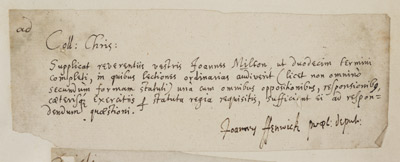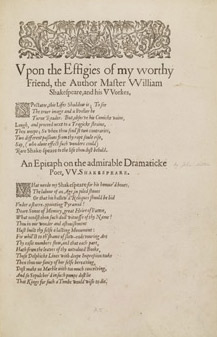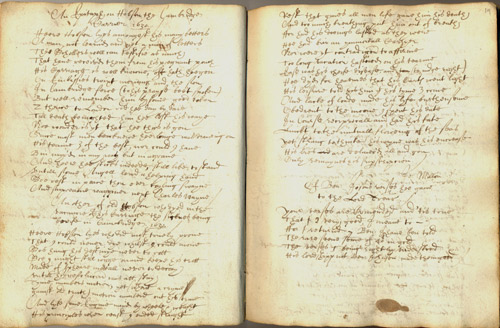An Uncommon Stock of Learning
Milton was a born scholar. By his own account, ‘from my twelfth year I seldom quitted my studies for my bed till midnight’, and he came to regard the ‘undisturbed privilege of pursuing historical inquiries’ as a liberty ‘essential to the comfort of human life’. His poetry and polemical writings are steeped in classical, biblical and patristic learning, and at intervals throughout his life he produced pedagogical works and translations.
After attending St Paul’s School in London he came up to Christ’s College, Cambridge, in 1625, aged sixteen, and spent seven years in the study of classics, logic and philosophy, his feminine beauty earning him the nickname ‘the lady of Christ’s’. On leaving Cambridge Milton embarked on a programme of further study, which he maintained was needed to overcome the shortcomings of his university education, and in 1638–9 he visited France, Italy and Geneva, attending learned academies in Florence and meeting Galileo.
 |
Milton’s autograph ‘supplicat’ for his Bachelor’s degree, 1629. Cambridge University Archives, Supplicats 22 |
 |
The ‘Epitaph’ by Milton in the second folio edition of Shakespeare’s plays (London, 1632). SSS.10.7 |
 |
Milton’s subscription to the articles of religion, 1632. Cambridge University Archives, Subscriptions 1 |
 |
Two poems commemorating Thomas Hobson, transcribed c. 1630s–[40s?]. St John’s College, Cambridge, MS S.32. By kind permission of the Master and Fellows of St John’s College, Cambridge. |
|




